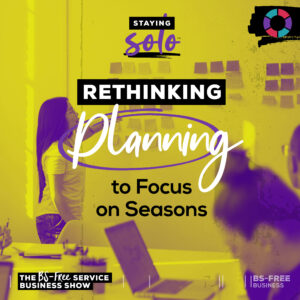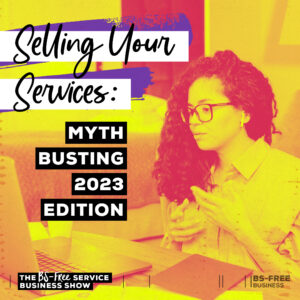
Search the site:
How To Ask for Client Testimonials
As a marketer with over 20 years of experience, one of my favorite programs I’ve ever worked on for clients has been telling their customer stories. So it shouldn’t be any surprise I’ve been asked countless times about how to ask for client testimonials.
But there’s always another part of the question, which is…“Do I really need to do this?”
And the answer is always the same: Yes, you do.
When considering why client testimonials are such a powerful marketing tool, the data doesn’t lie.
Research conducted by Dixa recently showed that 97% of survey participants said customer reviews are a factor in buying decisions.
Additionally, 92% of consumers will hesitate to purchase without customer reviews.
In Bright Local’s 2023 Local Consumer Survey, 79% of customers said they put as much weight on customer reviews as personal recommendations.
In today’s world, potential clients rely heavily on social proof in the form of experiences and opinions to decide whether or not they will work with you. (And for what it’s worth, I’m not talking about cheezy testimonials we usually see used by celebrity entrepreneurs.)
That’s why you need to learn how to ask for client testimonials.
Here are some tips on how to ask for client testimonials.
Why Invest in Testimonials?
Customer feedback is a powerful marketing tool that enables you to use the voice of your clients to promote your business. It helps your potential clients to see how your services could benefit them.
Simply put, happy customer testimonials help validate a potential client’s buying decision.
Using the voice of the customer in your marketing can be highly effective and can have many positive impacts on your business:
- Capitalizes on word-of-mouth marketing.
- Builds trust with your audience.
- Increases lead generation.
- Elevates your brand reputation.
- Increases your credibility.
One of the biggest traps people fall into with testimonials is they don’t start asking for them until they NEED them.
The easiest way to make this task happen is to ensure regularly asking for testimonials is part of your internal processes.
So, now that you’re clear on why you need them, it’s time to figure out how to ask for client testimonials. I know it may be tempting to avoid them altogether, so let’s go through three key steps you can take to make the whole thing easier.
Step 1: Nail Down Your Process
Collecting testimonials should be an ongoing task, so the easiest way to make this routine is to start by creating templates for the process.
Your process should include:
- Criteria for identifying and selecting your ideal clients to ask for a testimonial.
- An email template for making the request.
- The questions you’ll ask your clients.
Deciding when you will ask for testimonials should also be part of creating your process. If you’re running a service-based business, you could ask for testimonials at the 90-day mark if the client relationship is ongoing or the conclusion of a shorter-term project.
When deciding who to ask, do your homework. If you have a team, ask them who they think would be good candidates. This will help identify hidden gems you may not have thought of and avoid clients who won’t be a fit.
Getting a testimonial from your client will often come down to timing. If you’re right in the throes of an extensive project, now’s probably not the time.
FACTS: The best time to ask for a testimonial is when you know your client is happy!
Requesting testimonials is one of those tasks that can often fall by the wayside, so I suggest creating a recurring monthly or quarterly task so you don’t forget or put it off. Your goal should be to collect these throughout the year, not just when you need them for a specific purpose.
Step 2: Create Your Template
When considering how to ask for client testimonials, it may have crossed your mind to see if you can completely automate the process.
Don’t do that! As tempting as it would be to “set it and forget it,” a good testimonial process will be personalized.
Think about it this way. In essence, you’re asking for a favor. You’re asking for your client’s time to share their experience, so you want them to know they’re appreciated — not just one in a sea of many who got some canned email.
This is why creating a testimonial request email template can be helpful. You can customize and personalize as needed, but you’ve standardized your process.
You want to ensure the request to them shares the specific reason you’re asking them for the testimonial and how much you appreciate them as a loyal customer.
Step 3: Make it An Easy Yes
The key here is to keep it simple. You don’t want your clients to feel overwhelmed or like you’re asking too much. You want to highlight that this is an opportunity for them to highlight THEIR success and story. You want this to be an easy yes.
As a service provider, customer experience should always be top of mind, and your testimonial process is no different.
Part of making this an easy yes is offering more than one way to provide a testimonial. Some clients will be happy to fill out a short questionnaire (with open-ended questions).
Others may prefer a quick interview call. And some may just want to write something up and send it in an email. You can even opt for a video testimonial if your client is interested in providing one.
Since different clients will have different needs, consider what the best option(s) may be for your clients.
How to Ask for a Testimonial: Just Do It!
Asking for customer testimonials doesn’t have to be weird or uncomfortable. By making it a routine part of your marketing and sales, you can ensure your process runs smoothly and doesn’t get forgotten.
Remember, don’t wait until you need great testimonials to do the asking. Instead, focus on being proactive and fostering stronger relationships with your clients so that when you gather those testimonials, you’ll know who to ask for those rave reviews.
Are you looking to create your client testimonial process? Are you trying to avoid a potentially awkward conversation when you make the ask?
Terrific Testimonials includes a video workshop diving into everything you need about testimonials and a workbook designed to help you plan your testimonial process — including 20 of my favorite testimonial questions and a script to use when requesting a testimonial.


I’m Maggie Patterson (she/her), and services businesses are my business.
I have 20+ years of experience with client services, am a consultant for agency owners, creatives, and consultants, and vocal advocate for humane business practices rooted in empathy, respect, and trust.
Read or Listen to the Latest
For Solo Business Owners

Growing a solo service business is tough.
It’s even harder when you’re bombarded with BS advice that steers you away from your values and why you started your business in the first place.
This is the podcast for solo creatives and consultants who want to remain as a team of one and have zero interest in the hustle and grind of typical business teachings.
Subscribe now and never miss an episode.
For Micro Agency Owners
Most podcasts for agency owners obsess over revenue growth as the ultimate success metric.

But here’s the truth: not everyone wants to make millions. Your goal might be to build a sustainable business that lets you have a life and doesn’t run you into the ground.
Join me as I spill my shameless confessions and share everything I’ve learned about building a micro agency that skips the BS of tired and typical agency teachings.
Follow Now on All Major Podcast Platforms








